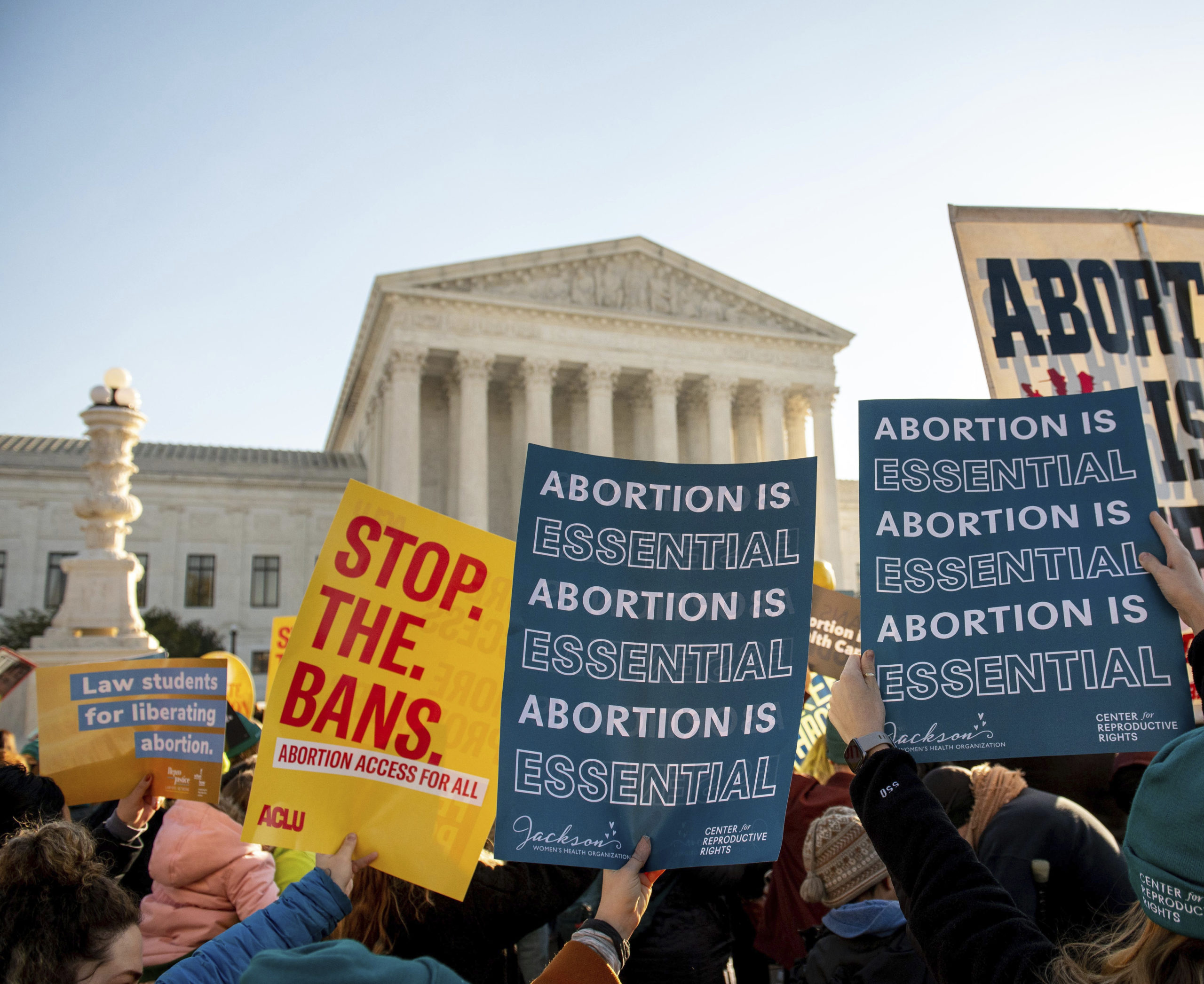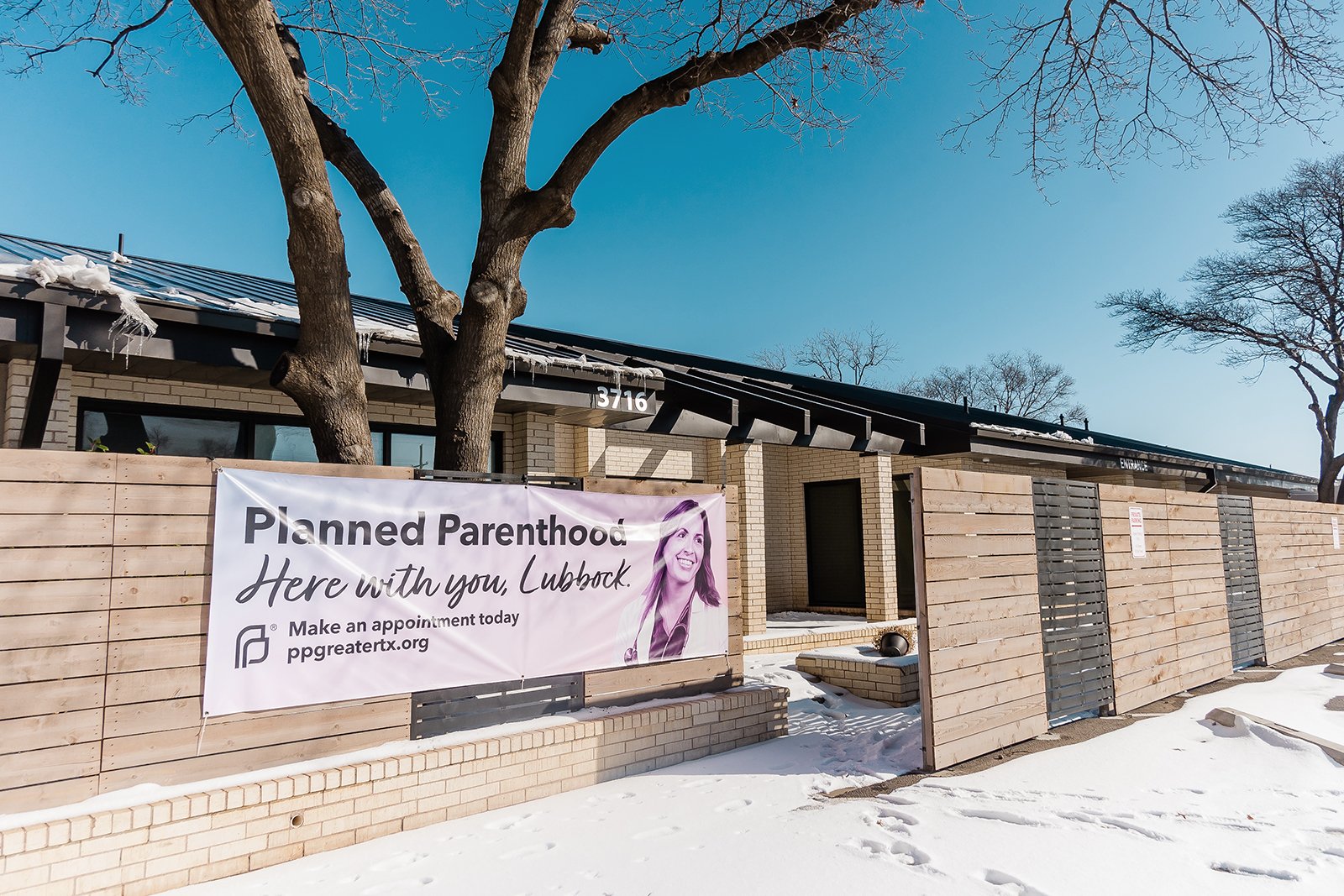
UPDATED: National Coalition Files Legal Challenge to Texas Anti-Abortion Law
Updated at 11:50 a.m with comments from reproductive rights groups and at 2:25 p.m. with comments from Texas Right to Life.
Today in federal court, a coalition of reproductive rights organizations filed a legal challenge to two provisions of House Bill 2, the controversial anti-abortion bill passed by the Texas Legislature this summer.
Planned Parenthood Federation of America, Planned Parenthood affiliates in Texas, the American Civil Liberties Union, the ACLU of Texas, Whole Woman’s Health and the Center for Reproductive Rights announced the long-anticipated challenge this morning.
“We’re in court today to stop a terrible situation for women in Texas from getting even worse,” said Cecile Richards, president of Planned Parenthood Federation of America. “If this law goes into effect, there is no doubt it will end access to safe and legal abortion for many women, leaving some to resort to desperate and dangerous measures. We won’t let that happen.”
House Bill 2 bans abortion at 20 weeks post-fertilization, requires abortion doctors to have admitting privileges at a nearby hospital, restricts the use of abortion-inducing drugs and requires abortion clinics to make costly facility upgrades in line with surgical care centers. The main provisions of the bill are due to take effect on October 29, with the exception of the ambulatory surgical care center provision, which goes into effect on September 2, 2014.
Critics of the bill describe it as one of the harshest anti-abortion laws in the U.S.
The lawsuit, Planned Parenthood v. Abbott, aims to block two provisions of HB 2: the admitting privileges requirement and the restrictions on the use of medication abortion. A press release issued this morning by the plaintiffs stated that the admitting privileges requirement “could cause at least one-third of the state’s licensed health centers providing safe and legal abortion today to stop providing that service next month. It would completely eliminate access to safe and legal abortion in vast stretches of Texas including the cities Lubbock, Fort Worth, Waco, McAllen, Harlingen and Killeen.”
Jim George, of George Brothers Kincaid & Horton LLP and who’s representing the plaintiffs, said the admitting privileges requirement has created a “crisis of access” and that there would be no abortion providers with a right to perform an abortion west of I-35 and east of El Paso.
The difficulties of obtaining hospital admitting privileges are already being felt. Ken Lambrecht, CEO of Planned Parenthood Greater Texas, said that there are only three hospitals within a 30-mile radius of the Planned Parenthood abortion clinic in Waco. After Planned Parenthood’s physician requested admitting privileges at each, one hospital advised him not to apply because they are a Catholic institution, the other hospital, a Baptist-run facility, returned his application, and the third hospital is yet to return his calls.
Physicians at a Planned Parenthood abortion clinic in Lubbock have been similarly unsuccessful. Of the two hospitals within the 30-mile radius required by the new law, one only grants admitting privileges to teaching physicians, and the other requires doctors to reside locally, which the Planned Parenthood physicians do not.
Amy Hagstrom-Miller, CEO of Whole Woman’s Health, said that her clinic physicians have also been told that they shouldn’t bother applying for admitting privileges because the local community is Catholic. She added that only gave doctors 90 days to apply for privileges, whereas the privilege request process normally takes six to eight months.
Yet the law now requires abortion clinics to have admitting privileges by October 29, or they will lose their legal ability to provide abortions.
The second challenge outlined in today’s filing aims to block the restrictions on the use of medication abortions. The new law requires women seeking medical abortions to come to the clinic for more in-person appointments. It also requires physicians to adhere to a prescribing protocol that the plaintiffs describe as “inferior, outdated and less effective.”
Jim George said that the plaintiffs hope to win a preliminary injunction that will prevent the admitting privileges provision and the medical abortion restrictions from going into effect on October 29. He said that he expects the state to appeal to the Fifth Circuit Court of Appeals if the judge finds in the plaintiffs’ favor. He confirmed that the plaintiffs would also appeal were the district court judge to find in the state’s favor.
Texas Right to Life, the anti-abortion organization that strongly supported House Bill 2, said in a press statement today: “While these abortion advocates seem to be aggressive in fighting this law, they in fact have already accepted a significant defeat: they decided not to challenge the biggest portion of HB 2, the Preborn Pain Section, which prohibits elective abortion after 20 weeks based on scientific evidence that these children feel excruciating pain during abortion. … They opted instead to challenge sections that will have a higher financial impact on the abortion industry. This demonstrates that the abortion industry only cares about the profits it makes from abortion, not the women whom it falsely claims to care for and help.”
However, Nancy Northrup, president and CEO of the Center for Reproductive Rights, said in a press conference earlier that they were working with their clients to assess the impact of the 20-week ban. She declined to go into further detail, saying that it was not appropriate to discuss their litigation strategy.
Reproductive healthcare is one of the most litigated areas of healthcare in the U.S. In the last three years alone, reproductive rights groups have litigated more than 35 separate lawsuits. The suits have challenged mandatory ultrasound laws, biased abortion counseling regulations, hospital admitting privileges requirements, restrictions on the use of medical abortions and abortion bans at 6, 12 or 20 weeks gestation.
The judiciary has also been involved in wrangles over basic health care provisions. Lawsuits have challenged laws blocking women’s access to preventive health services, as well as restrictions on Planned Parenthood providers from accessing federal and state funding sources, and from participating in STD prevention programs and nutritional programs for low-income women and children.
Much depends on the tenor of the courts in which the case is filed, as well as the political leanings of the federal appellate court where the suits are inevitably referred. Progress in other state courts is no indication of how a case might proceed in Texas.
The Ninth Circuit Court of Appeals, for example, found in favor of women’s health providers in Arizona, who argued that Planned Parenthood’s eviction from the state Medicaid program violated enrollees’ right to choose their health provider. However, a similar case in Texas was heard in the Fifth Circuit Court of Appeals, where the judge found that Planned Parenthood’s eviction from a federal Medicaid program was not unconstitutional.
Indeed, the Fifth Circuit Court of Appeals, where today’s lawsuit could go, is notoriously conservative. Caitlin Borgmann, law professor at CUNY School of Law, who is not involved with today’s filing, said: “The climate is bad for abortion challenges in the Fifth Circuit.” In January 2012, for example, Fifth Circuit Judge Edith Jones upheld a mandatory ultrasound law that had been overturned by a lower court.
Just yesterday, Gov. Perry appointed Jeff Brown to the Supreme Court of Texas. He is an opponent of abortion rights and has been hailed by Texas Right to Life for his ‘pro-life’ views.


